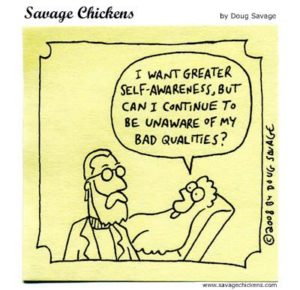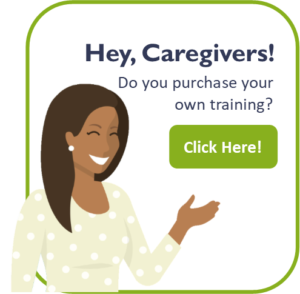If you were asked about the professionalism of your employees, what would you say? That question was posed to hundreds of HR professionals, supervisors and managers across the U.S. by the Center for Professional Excellence at York College of Pennsylvania. The researchers compiled the responses into their 2012 Professionalism in the Workplace Study.
This is the third annual study done by the Center and, unfortunately, a large percentage of respondents believe that professionalism among new hires has decreased in the last five years. Which unprofessional qualities were mentioned most often? They include:
- Inappropriate appearance
- Lack of dedication
- Poor work ethic
- Sense of entitlement
- Disrespect
- Poor communication skills
- Being unfocused
- Having a poor attitude
If you take a closer look at these eight qualities, don’t they all boil down to an employee’s level of self-awareness? People who are highly self-aware understand that they are not the center of the universe BUT that everything they say and do can affect the people around them. They recognize that their own thoughts and feelings can lead them to act in a way that is either helpful or harmful–to themselves and to others.

Consider CNA #1, Sara. When she shows up for work, it’s usually ten to fifteen minutes late and she’s wearing stained, wrinkled scrubs. As she completes her patient assignment, she does the bare minimum. Sara has a hard time staying on task, preferring to stand around and gossip about both patients and fellow employees. She gets into shouting matches with her co-workers on a weekly basis. Last week, when you counseled her about her work performance, she got defensive and acted as if she’s doing you a favor by showing up for work.
Obviously, Sara does not see herself as others do. It’s doubtful that she has taken time to examine her personal values and to evaluate whether her behavior meets those standards. Her actions reflect a lack of respect for herself and for others. Her lack of self-awareness is contributing big time to her unprofessional behavior.
Compare Sara to CNA #2, Margaret. While she makes mistakes and has bad days, Margaret acknowledges (and apologizes for) her failings and tries to learn from them. Most days, she arrives at work with a smile on her face, ready to tackle whatever assignment she is given. She is always eager to help out a co-worker and treats everyone on the team with respect. She is proud to be a nursing assistant which is obvious by her neat appearance and caring manner. She knows that her time management skills could be better and she’s asked you for tips to help her be more efficient.
Margaret isn’t perfect…but it’s clear that she has more self-awareness than Sara. Margaret knows that she values efficiency but needs to improve her time management skills. She values her job, a positive attitude and teamwork—and her actions reflect those values. Her level of self-awareness adds to her professionalism and makes her a more valuable employee than Sara.
How self-aware are your employees? Here’s a simple, non-threatening way to begin a discussion of self-awareness among your staff. Download and distribute our questionnaire, How Self-Aware Are You? You could hand it out at your next staff or inservice meeting or include it with a paycheck. To save paper, you could email it to employees or post a copy of the questions—and answer key—in the employee breakroom or bathroom. No matter how you use it, this questionnaire can help get the self-awareness ball rolling by offering some food for thought for both you and your employees. What have you got to lose except maybe some unprofessional behavior?



I really like Margaret’s example, very professional.
Thanks, Cynthia, for taking the time to visit our In the Know blog…and for your comment. Wouldn’t it be great if everyone who worked in healthcare was like Margaret? 🙂
Take care,
Linda
Indeed I like Margaret’s professional approach,thanks for sharing .
Hi Linda. I think self-awareness and positive mental attitude is very important especially as a nursing assistant. I also agree with the idea that our words and actions affect others. As my friend used to say, “Your words create your world.”